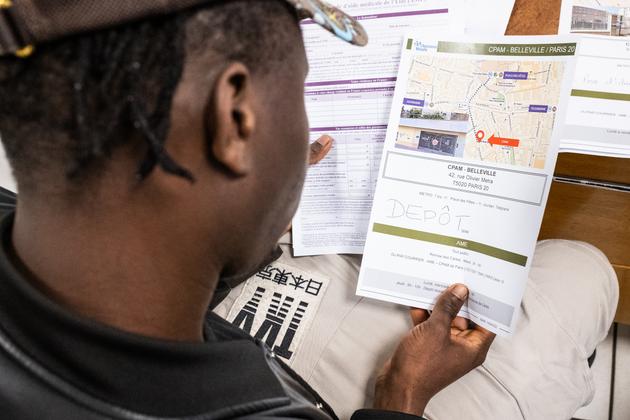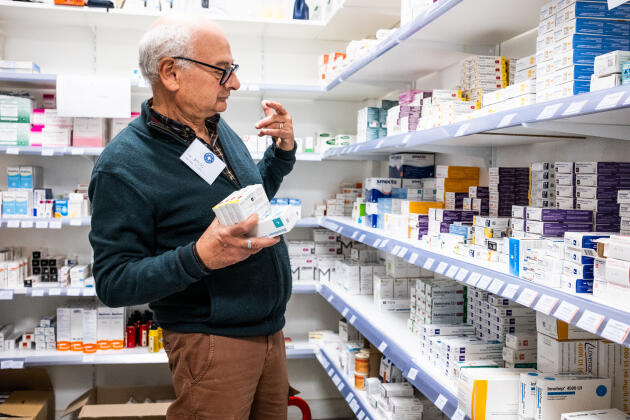


With the undocumented migrants whose French healthcare aid may be slashed
FeatureAs France's Parliament debates a bill on immigration that includes provisions to significantly reduce the only healthcare coverage available to undocumented people, care workers worry about the public health consequences of such a move.
His knee had been hurting for two weeks. Maybe it was nothing serious, but for a construction worker specializing in masonry work, a knee is a necessary tool. The problem is that Sikou (people quoted by their first names have requested anonymity) has no health insurance. He arrived in France in 2018, he is undocumented and was unable to renew his status as a beneficiary of a program called the State Medical Aid (AME), which provides healthcare to undocumented people for a slate of pathologies.
So that autumn morning, for want of a better solution, he went to one of the health centers run by Doctors of the World, in Saint-Denis, just north of Paris. The doctor who saw him, Marc Pomper, gave him a painkiller and anti-inflammatories. While examining him, Pomper noticed that the Malian had "a little" tension. "You can come back in three weeks to check," he suggested.
By accepting people who have no healthcare coverage, Pomper catches a glimpse of the situations that could multiply if the AME aid were abolished and replaced by "emergency medical assistance," as provided for in the draft law on immigration being debated since Monday, November 6, in France's Sénat.
Minkoro, a 36-year-old Ivorian, suffers from dilated cardiomyopathy. As he has been living in France for less than three months, he is not yet entitled to the AME. "This is an extreme case," said Pomper. "I sent him to the hospital a few days ago because I thought they'd keep him for a proper check-up, but they sent him back after a day, with treatment for heart failure, without even giving him a coronary angiogram." Lacking the funds to buy the prescribed drugs, Minkoro returned to Doctors of the World in the hope of obtaining them free of charge.


Critics on the right and far right claim that the AME is misused to cover unessential care. But a 2019 report by the General Inspectorates of Social Affairs and of Finance found that "according to [public health insurance] statistics, AME beneficiaries consume fewer 'comfort' drugs than the general population: this is the case, for example, for cold and cough medicines (-6%), medicines for digestive disorders (-19%) and anti-acne medicines (-42%)".
Very frequent non-return
At the Doctors of the World center in Saint-Denis, which welcomed some 3,000 patients in 2022, people come especially for "problems with diabetes, hypertension, sleep," said Isabelle Jouy, a volunteer nurse. "A few days ago, a lady came in because she had a tumor on her back. This morning, a gentleman was worried about his mother, who has cancer. I also referred 11 people for tuberculosis screening."
You have 55% of this article left to read. The rest is for subscribers only.
